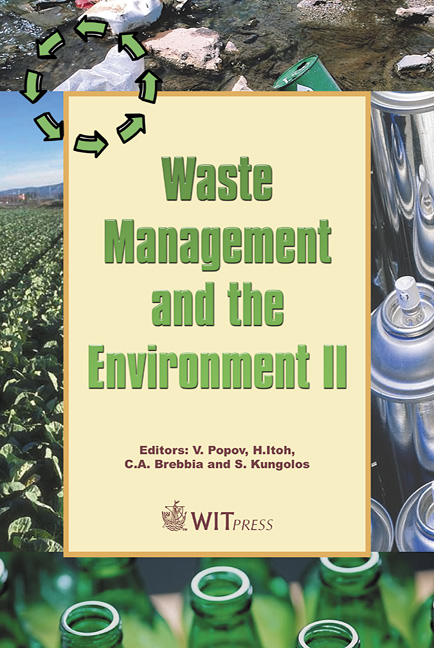Assessment Of A New Waste Biodegradation Model For MODUELO
Price
Free (open access)
Transaction
Volume
78
Pages
10
Published
2004
Size
391 kb
Paper DOI
10.2495/WM040411
Copyright
WIT Press
Author(s)
A. Lobo, J. Muñoz & I. Tejero
Abstract
Several research groups are working on the development of dynamic simulation tools for the design, management and monitoring of municipal solid waste landfills. One of these tools is the MODUELO software, which the Environmental Engineering Group of the University of Cantabria has been developing since 1998. Based on meteorological data, waste generation and landfill layout data, the program estimates the leachate flows and the gas generated in time. The three dimensional model of the landfill is composed of layers formed by square horizontal section cells. The hydrological and biodegradation phenomena are simulated by means of simplified models that have been specifically created or adapted from existing ones. In the recently developed second version, MODUELO 2, both the hydrologic and the waste biodegradation modules have been improved. This paper presents the developed new waste biodegradation model and a first assessment of its simulation results. The changes from the original model affect both the waste characterization parameters and the definition of the biodegradation processes. Waste biodegradability is defined by means of three factors: fbio (biodegradable fraction of the organic matter), fdr (non biodegradable fraction that can be dragged along in the hydrolysis) and fah (accessibility to the waste for the microorganisms). The waste biodegradation process has been divided into three stages, hydrolysis, acetogenesis and gasification, which give place to seven kinetics modelled through first order laws. This new model has been initially checked by simulating the biodegradation process of municipal solid waste in a theoretical closed cell. The simulated emissions show a good agreement with the general tendencies observed by other authors in several facilities, which constitutes a first step for the general verification of the modified version of the program. Keywords: landfill, biodegradation, organic pollution, leachate, modelling, municipal solid waste, dynamic simulation.
Keywords
landfill, biodegradation, organic pollution, leachate, modelling, municipal solid waste, dynamic simulation.





